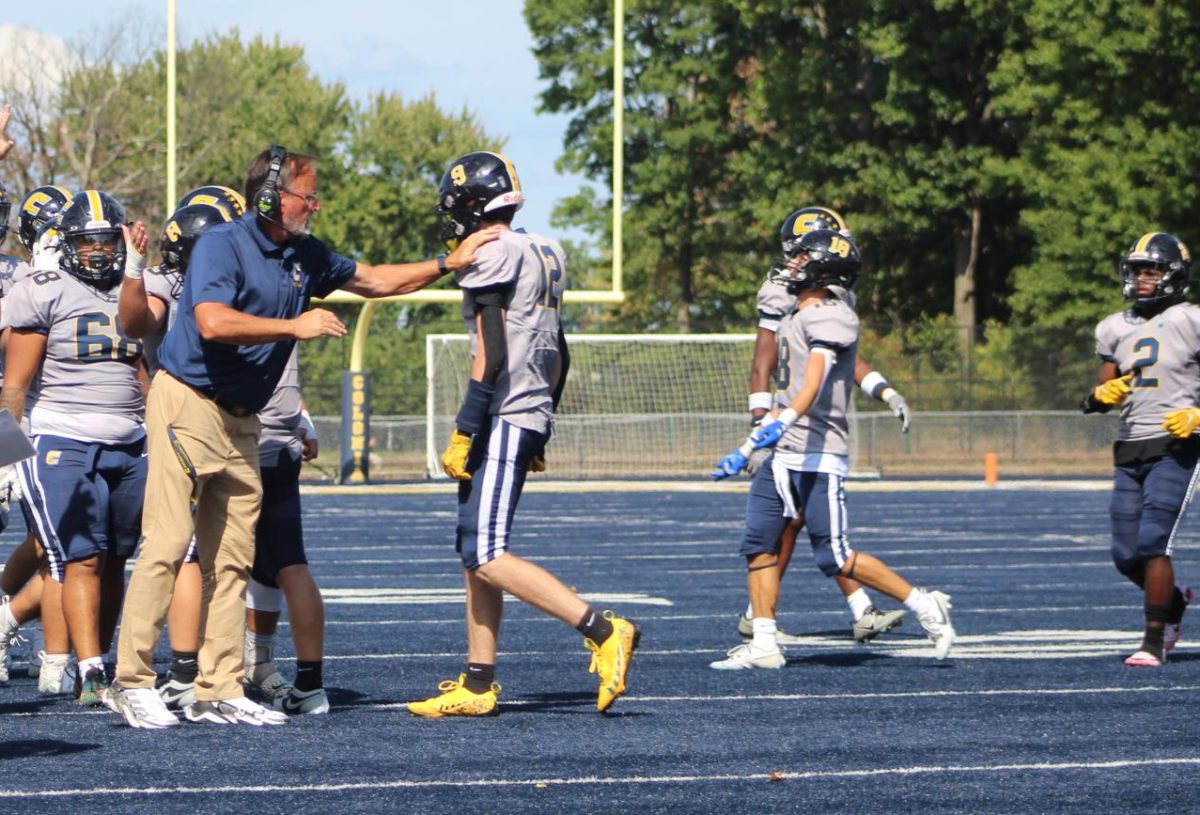
Role of sportsmanship in high school athletics
Practicing good sportsmanship from a young age can have a positive effect on development and maturity of a student athlete. The high school years are a crucial time for growing up as athletes start off as young teenagers and leave as legal adults. Learning how to respect the competition while also having the desire to win helps athletes learn to practice self-control.
Friendships can also be born out of sportsmanship with players participating in friendly competition. By showing respect to everyone in the game, athletes can strengthen bonds with their teammates, opponents, and coaches as well. Sportsmanship can enhance and encourage genuine interactions between opposing players and diverse communities.
One athlete practicing sportsmanship can inspire others to do so and create a better environment around high school athletics. Showcasing sportsmanship can raise the standards in how athletes treat each other both in and out of the game. Encouraging athletes to treat each other in a sportsmanlike manner can create a better culture in the world of athletics.
Sportsmanship in high school starts with those in positions of authority–the coaches and athletic directors. Coaches have the responsibility to influence players on their team in a positive manner. It is up to them to develop a culture of sportsmanship in their athletic programs. It is important to lead by example and demonstrate to their athletes what true sportsmanship looks like. By treating officials and opponents with respect, the coaches on the team can inspire their athletes to do the same. Being polite to everyone is often easy, but times of adversity and stress can reveal someone’s true character.
Coaches and athletic directors at high schools should set boundaries and discipline whenever an athlete engages in unsportsmanlike conduct. They should make it clear that this kind of behavior won’t be tolerated during games or at practice. Conversely they should also acknowledge those who are respectful and recognize them as role models and examples for other athletes. Recognition often goes a long way for high school students and athletes alike.
In addition to the coaches encouraging sportsmanship, parents and other authority figures in an athlete’s life can reinforce these lessons. This can go even further in helping athletes balance a competitive fire with mutual respect for their competition. By creating boundaries, setting expectations, and leading by example, coaches, athletic directors, and parents alike can promote sportsmanship and develop core values in student athletes that will help them in high school and beyond.

Sportsmanship is an important aspect of all levels of athletics. While it comes in many forms, everyone can give a few examples of what sportsmanship looks like to them. Whether it’s shaking hands before and after games, clapping for injured players once they get back up, or even helping an opponent off the ground, all athletes have their own way of being a good sport. There are, however, many other ways of displaying good sportsmanship.
Sportsmanship is a commitment to fair play as much as it is a commitment to respectful and ethical behavior. It isn’t just shaking hands with teams, it is also being sure to play with integrity. It is a requirement that an athlete is disciplined enough to have perspective, keep composure and do what is best for the team. Being able to make the right decision in a high pressure situation can often reveal a player’s true character.
It is common for athletes, especially at the high school level to get caught up in a game and become too fixated on winning. Although winning is important, it is not always the most important part of the game. Good sportsmanship is one of the most important life lessons and every athlete should learn and practice it.
True sportsmanship is often shown by how an athlete handles defeat or disappointment. After a hard fought game in which everything was left on the court or field in a losing effort, it can be very difficult to look an opponent in the eye and give them credit for their win. As difficult as it is, it is the respectful thing to do and is required in good sportsmanship.
It is difficult to be gracious in defeat, but winning and losing with dignity is important. Keeping in mind that losing is often a learning curve can make it a little easier to be less bitter in defeat. It is important to always accept responsibility for the loss and to refrain from placing blame on any teammates, officials, or any other external factors in defeat. Acknowledge the winners and congratulate them without complaints. Oftentimes, the opponent is simply better and even if they are not better in general, they were better during that particular contest on that day. the losing side should acknowledge the efforts and accomplishments of the opponent. Complaining is a sign of a lack of discipline in an athlete.
Conversely, being a gracious winner is just as important as being gracious in defeat. Winning is exciting and is the best reward for the team’s hard work. It is every athlete’s responsibility to do whatever it takes for the team to win while also playing within the rules of the game.
Winning doesn’t mean the team was perfect or that the other team was completely flawed. Athletes should simply celebrate their win, but maintain respect for the team that lost. Being gracious in defeat and winning with humility and pure class are two of the most important factors in sportsmanship. Acknowledge the opponents’ effort and that they were worthy competitors.

A study conducted by the NCAA in 2018 showed that while sportsmanship among players has seen an increase over the years, sportsmanship in the fans has declined. It is a very interesting concept that those in the stands sometimes appear to be more angry about a loss than the players in the game. While athletes and coaches have taken a step back and practiced sportsmanship more and more, it is important for fans to do the same.
I believe one thing that fascinates people about sports is that it reflects life in many ways. Like life, sports are tough and don’t always go one person’s way. This makes sports a wonderful training ground for the challenges a teenager will go through in their adult life. Just like there is winning and losing in sports, there are also plenty of successes and achievements, challenges and failures in life. It is also important to be gracious and classy during the high points and low points of life, just like it is important to be gracious in defeat and victory in sports.












